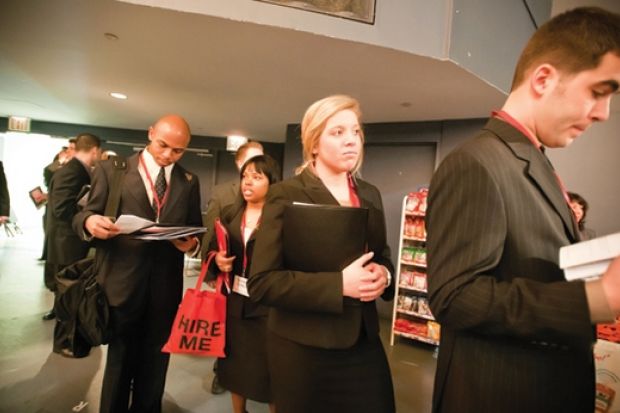The growth of private higher education has had a devastating impact on the US academy and poses a major threat to the UK, a university admissions expert has warned.
Betty Huff, president of the American Association of Collegiate Registrars and Admissions Officers, told a conference in Nottingham last week that the US had been lured into a false sense of security by its successful and respected private universities.
However, the ruthlessness of the private sector had taken the country by surprise, she added, and had damaged the reputation of the US higher education system.
Speaking at the annual conference of the Association of University Administrators, Ms Huff said: "Not all for-profit institutions are bad, but we were not prepared for what happened. They throw out statistics that seem to show success, but (the reality is) not good."
She cited one Californian institution, which she did not name, where a cohort of nurses had graduated despite their course failing to offer them any clinical practice.
This left the graduates unemployable, despite the fact that many of them had spent as much as $60,000 (£36,200) obtaining their qualifications, she said.
She also highlighted the rapid expansion of some private institutions, citing the case of The Franciscan University, an Iowa-based institution with about 350 students, which was taken over by private firm Bridgepoint Education in 2005. Within two years the institution, which offered just six qualifications on campus, had been rebranded as Ashford University and had enrolled 75,000 students, most studying for online degrees.
Ms Huff urged delegates at the conference to warn UK politicians of the dangers of private provision, suggesting they use the US as an example. "They are businesses and they are only (in it) for profit," she said.
The students that the firms typically target are the first from their families to enter higher education, "so they don't know the right questions to ask, and they don't know about accreditation", she added.
"Even when (for-profits) offer legitimate programmes and have legitimate faculty, they are admitting students who are probably not admissible to public universities."
Ms Huff said that students at private colleges in the US accounted for 42 per cent of those defaulting on student loans - a point that is particularly relevant for the UK where access to the student loan system by private providers is being expanded.
Between 89 and 95 per cent of private providers' operating budgets come from federal financial aid, yet one college president was able to make $42 million in salary, she said. She added that the US government's student aid budget could be "drained dry" as a result.
Ms Huff also warned that US students had come to expect better student services and facilities as a result of high fees, and that this in turn had pushed up costs.
"We find ourselves putting a lot of money into it, and these are dollars we have to come up with," she said.
Register to continue
Why register?
- Registration is free and only takes a moment
- Once registered, you can read 3 articles a month
- Sign up for our newsletter
Subscribe
Or subscribe for unlimited access to:
- Unlimited access to news, views, insights & reviews
- Digital editions
- Digital access to THE’s university and college rankings analysis
Already registered or a current subscriber? Login
